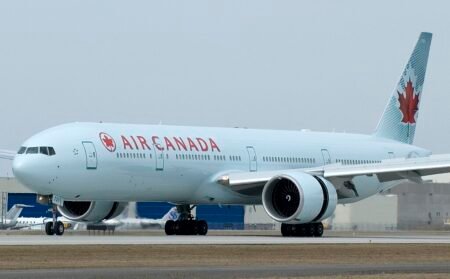Australia’s Prime Minister Anthony Albanese has secured a second term in office, saying the nation has chosen unity over division in a time of global instability. The center-left Labor Party led by Albanese achieved a strong result in Saturday’s general elections, showing public support for steady governance amid economic uncertainty and global tensions.
Labor Party Strengthens Hold in Parliament
As of Sunday, vote counting showed the Labor Party on track to win at least 85 seats in the 150-member House of Representatives. That’s a clear majority and a notable increase from the 78 seats the party held after the 2022 election. In Australian politics, gaining seats during a second term is rare and often considered a sign of strong public approval.
Prime Minister Albanese was seen on Sunday morning at a café in Leichhardt, a suburb in Sydney, where he met with supporters and fellow party members.
“The Australian people voted for unity rather than division,” Albanese told reporters at the café. “We will be a disciplined, orderly government in our second term, just like we have been in our first.”
Albanese was joined by his fiancée, Jodie Haydon, as well as senior party members celebrating the win.
Voters Seek Stability After Global Disruptions
Australia’s Treasurer Jim Chalmers, the government’s top economic official, said the election results reflect the desire of voters for a stable and responsible administration.
“This was beyond even our most optimistic expectations,” Chalmers told the Australian Broadcasting Corporation (ABC). “We know that this second term has been given to us by the Australian people because they want stability in uncertain times.”
Chalmers referred to U.S. trade tensions, including tariffs and disruptions introduced during Donald Trump’s administration, as a source of concern for many Australian voters. During the campaign, Australia was hit with 10% tariffs on some of its exports to the United States, despite a long-standing free trade agreement between the two countries.
Opposition Faces Major Losses
The conservative opposition suffered a significant defeat. Peter Dutton, the leader of the opposition coalition, lost his seat in Parliament. His alliance now holds only 37 seats, a sharp decline that further signals a shift in public mood.
Political analysts have compared this outcome to recent elections in Canada, where opposition leader Pierre Poilievre also lost his seat after linking too closely with Trump-era policies. Poilievre had been seen as a favorite to return the Conservatives to power, but voters rejected his approach after the U.S. imposed economic penalties on Canadian goods.
Much like Canada, Australian voters appeared to be wary of political movements that align too closely with aggressive foreign economic policies.
A Rare Second-Term Surge
Historically, Australian governments that win a second term often see reduced numbers in Parliament. Albanese’s ability to not just hold but expand his party’s presence is unusual. The last time a sitting government gained seats in a second term was decades ago.
“This is a clear endorsement of Labor’s approach to governing,” said Professor Linda Thompson, a political scientist at the University of Melbourne. “Albanese has focused on practical issues, calm leadership, and international cooperation. That message has clearly resonated with the public.”
Election Focus: Economy, Healthcare, and Trade
Key issues during the five-week campaign included the rising cost of living, healthcare funding, and trade relations. Many Australians were concerned about economic shocks caused by global events, including ongoing tensions between China and the U.S.
Labor ran on a platform that promised to protect jobs, invest in renewable energy, and improve access to healthcare. The party also promised to stand firm in international trade negotiations while protecting Australia’s long-term economic interests.
The opposition, meanwhile, focused heavily on cutting government spending and reducing bureaucracy, but struggled to present a united front. Internal party disputes and unpopular foreign policy positions weakened their campaign.
Global Context: Australia Looks Inward, But Stays Connected
The re-election of Albanese comes at a time when countries around the world are rethinking their political direction. With ongoing wars, economic challenges, and climate concerns, Australian voters chose a leader seen as calm and consistent.
Albanese has said he will continue to strengthen relationships with key allies, including the European Union, ASEAN, and Pacific island nations. He is expected to push for more clean energy partnerships, while working to reduce reliance on volatile global supply chains.







